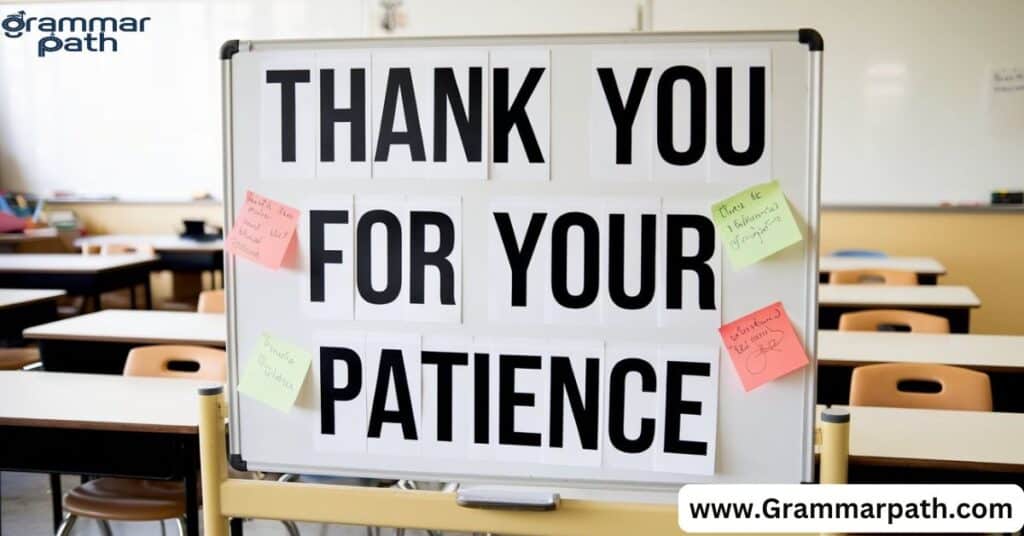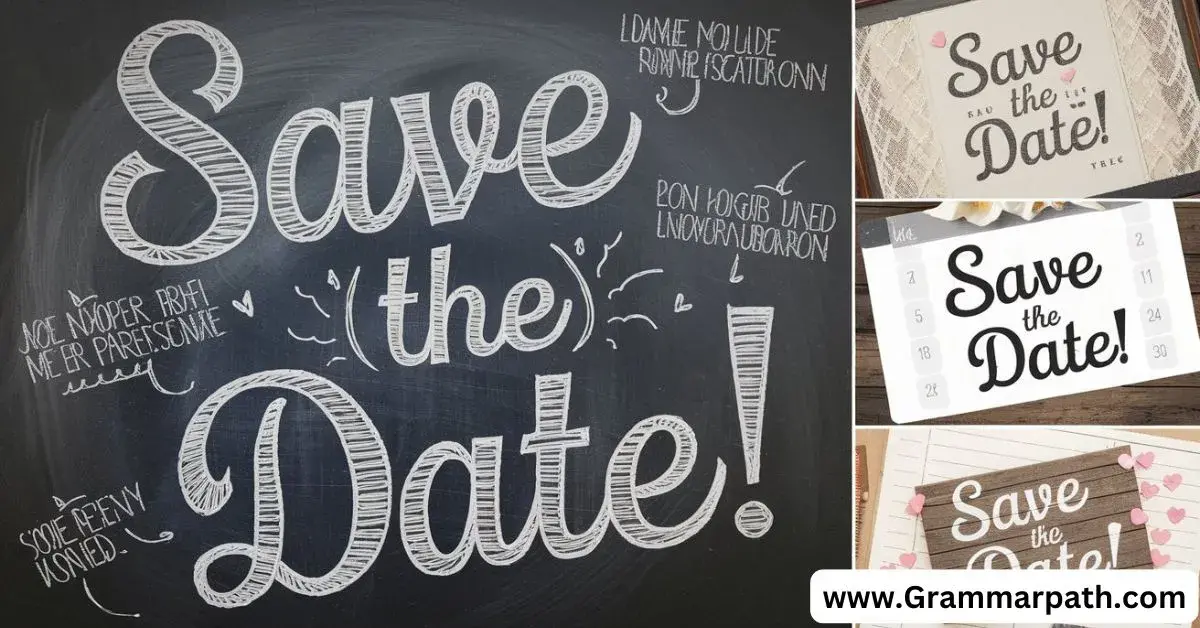
20 Professional Ways to Say “Please Be Patient” (With Examples)
Patience is a virtue, they say. But in our fast-paced world, asking someone to please be patient can feel like a tall order. Whether you’re dealing with a frustrated customer, a demanding boss, or an anxious colleague, finding the right words to request forbearance is crucial. This article will explore 20 professional ways to say “please be patient,” offering you a toolkit of phrases to navigate tricky situations with grace and tact.
In today’s high-speed, instant-gratification culture, the art of patience often gets lost in the shuffle. We’ve grown accustomed to lightning-fast responses and immediate solutions. Yet, some processes simply can’t be rushed. That’s where the delicate dance of requesting patience comes into play. It’s not just about buying time; it’s about fostering understanding and maintaining positive relationships even when things don’t move at breakneck speed.
Think about the last time you were asked to wait. How did it make you feel? The way someone asks for your patience can make all the difference between frustration and understanding. That’s why mastering these professional alternatives to “please be patient” is so vital. They’re not just phrases; they’re bridges of communication that can turn potential conflicts into opportunities for connection and goodwill.
What to Say Instead of “please be patient”
- Thank you for your patience
- We appreciate your patience
- Your patience is appreciated
- Thank you for waiting
- Thanks for bearing with us
- Please bear with us
- Kindly allow us some time
- Please allow us a bit more time
- We’re working on it, thanks for waiting
- Please hold on
- Just a moment
- Please wait a second
- We’re expediting the process
- Your request is our top priority
- We’re doing our best to accelerate this
- I assure you we’re working diligently
- This may take a moment, but it’ll be worth it
- We’re moving as quickly as we can without compromising quality
- Thank you for your understanding during this process
- We’re committed to resolving this as swiftly as possible
Is It Professional to Say “Please Be Patient”
While “please be patient” isn’t inherently unprofessional, it can sometimes come across as curt or dismissive, especially in writing where tone is hard to convey.
The phrase, though polite, might not fully acknowledge the other person’s time or concerns. That’s why we’re diving into more nuanced alternatives that not only request patience but also express appreciation and provide context.
20 Other Ways to Say “Please Be Patient”
Here are 20 Other Ways to Say “Please Be Patient”:
1. Thank you for your patience

This phrase is a classic for a reason. It assumes the best of the other person and expresses gratitude upfront.
Scenario (Email):
“Dear Mr. Thompson,
Thank you for your patience regarding the project timeline. We’re currently finalizing the last details and will have the complete report to you by Friday.
Best regards,
Sarah”
2. We appreciate your patience
Similar to the first, but with a more collective tone, perfect for representing a team or company.
Scenario (Customer Service Call):
“We appreciate your patience, Ms. Rodriguez. Our technical team is working diligently to resolve the network issue. We expect to have everything back up and running within the hour.”
3. Your patience is appreciated
This variation puts the focus squarely on the person waiting, acknowledging their forbearance.
Scenario (Project Update):
“Hello team,
Your patience is appreciated as we navigate these unexpected challenges. We’re making progress and will share a detailed update in tomorrow’s meeting.
Cheers,
Alex”
4. Thank you for waiting
Use this when someone has already been waiting and you’re acknowledging their time investment.
Scenario (In-person Retail):
“Thank you for waiting, sir. I apologize for the delay. How can I assist you with your purchase today?”
5. Thanks for bearing with us
This casual yet professional phrase works well in situations where you’re dealing with ongoing issues or changes.
Scenario (Software Update Email):
“Dear valued users,
Thanks for bearing with us during this transition to our new platform. We’re excited about the improvements and appreciate your flexibility as we iron out the final kinks.
The DevTeam”
6. Please bear with us

A polite way to ask for continued patience, often used when there’s more waiting to come.
Scenario (Conference Call):
“Woman and gentlemen, please bear with us for a few more minutes. We’re having some technical difficulties with the presentation, but our IT team is on it.”
7. Kindly allow us some time
This phrase is formal and courteous, ideal for professional settings where you need to set clear expectations.
Scenario (Legal Correspondence):
“Dear Ms. Patel,
We’ve received your inquiry regarding the contract terms. Kindly allow us some time to review the documents thoroughly. We’ll provide a comprehensive response by next Tuesday.
Regards,
Johnson & Associates”
8. Please allow us a bit more time
Use this when you need to extend an already existing timeline.
Scenario (Customer Support Email):
“Hello Jake,
We understand you’re eager for a resolution. Please allow us a bit more time to investigate the root cause of the issue. We’re committed to finding a permanent solution rather than a quick fix.
Best,
Emma from Support”
9. We’re working on it, thanks for waiting
This phrase combines action with gratitude, reassuring the person that progress is being made.
Scenario (Social Media Response):
“@ConcernedUser We’re working on it, thanks for waiting. Our team is aware of the login issues and is implementing a fix as we speak. We’ll update everyone once it’s resolved.”
10. Please hold on

A brief, to-the-point phrase best used in quick, real-time interactions.
Scenario (Phone Conversation):
“Please hold on, Dr. Lee. I need to pull up your patient’s file. It’ll just take a moment.”
11. Just a moment
Another concise option for brief waits, implying the delay will be very short.
Scenario (In-person Meeting):
“Just a moment, everyone. I need to adjust the projector settings so we can all see the presentation clearly.”
12. Please wait a second
Use this for very brief pauses, especially in informal or quick interactions.
Scenario (Instant Messaging):
“Please wait a second, I’m double-checking those numbers for you right now.”
13. We’re expediting the process
This phrase implies action and urgency on your part, reassuring the person that you’re not just asking them to wait, but actively working to minimize that wait.
Scenario (Business-to-Business Email):
“Dear Mr. Tanaka,
We’re expediting the process of your order fulfillment. Our team is working overtime to ensure your shipment arrives ahead of your upcoming trade show.
Best regards,
Linda from Logistics”
14. Your request is our top priority
Use this to emphasize the importance you’re placing on their needs, even if an immediate solution isn’t possible.
Scenario (Customer Support Chat):
“Hello Olivia,
I want to assure you that your request is our top priority. Our development team is currently implementing a fix for the bug you’ve reported. We’ll update you as soon as it’s ready for testing.
Thanks,
Carlos, Senior Support Engineer”
15. We’re doing our best to accelerate this

This phrase acknowledges that the current pace might not be ideal, but you’re actively trying to speed things up.
Scenario (Project Management Meeting):
“Team, I know we’re all eager to move forward. We’re doing our best to accelerate this approval process. I’ve scheduled a meeting with the stakeholders for tomorrow to address their concerns directly.”
16. I assure you we’re working diligently
This option provides a personal guarantee, which can be particularly effective in one-on-one interactions.
Scenario (Client Call):
“Ms. Blackwell, I can assure you that we are working diligently on your proposal. Given the complexity of your requirements, we want to ensure every detail is perfect before we present it to you.”
17. This may take a moment, but it’ll be worth it
Use this when you can confidently say that the end result will justify the wait.
Scenario (Retail Service):
“This may take a moment, but it’ll be worth it, sir. I’m double-checking our warehouse inventory to find the exact model you’re looking for in the color you prefer.”
18. We’re moving as quickly as we can without compromising quality
This phrase emphasizes your commitment to both speed and excellence.
Scenario (Manufacturing Update):
“Dear valued partners,
We’re moving as quickly as we can without compromising quality on your custom order. The intricate design requires precision work, but we’re on track to meet our agreed deadline.
Regards,
Aisha, Production Manager”
19. Thank you for your understanding during this process
This alternative expresses gratitude for their patience while acknowledging that you’re in the middle of a process.
Scenario (Healthcare Administration):
“Dear Mr. Johnson,
Thank you for your understanding during this process. We’re carefully reviewing your medical records to ensure we provide the most accurate diagnosis and treatment plan.
Sincerely,
Dr. Patel”
20. We’re committed to resolving this as swiftly as possible

Use this to convey a sense of dedication and urgency in addressing their concerns.
Scenario (Human Resources Email):
“Hello Rajesh,
We’re committed to resolving this payroll discrepancy as swiftly as possible. Our finance team is conducting a thorough audit, and we expect to have an update for you by end of day tomorrow.
Best regards,
Samantha, HR Director”
Pro Tips for Requesting Patience
The most crucial paragraph in this article is the one explaining why these alternatives are more effective than a simple “please be patient.” It’s not just about the words you choose, but the attitude and information you convey along with them. The key is to:
- Acknowledge the other person’s time and potential frustration.
- Explain why patience is needed, even briefly.
- Assure them that action is being taken.
- Provide a timeline or next steps when possible.
- Express gratitude for their understanding.
By incorporating these elements, you transform a simple request for patience into a moment of connection and mutual respect.
Conclusion
In our rush to get things done, we often forget the power of patience. By mastering these professional ways to say “please be patient,” you’re not just buying time you’re building relationships. Whether you’re dealing with clients, colleagues, or superiors, these phrases will help you navigate delays with diplomacy.
Remember, the way you ask for patience can set the tone for the entire interaction. It’s an opportunity to demonstrate your professionalism, empathy, and commitment to quality results. So next time you need someone to wait, choose your words wisely. Your patience in crafting the right message will likely be rewarded with their patience in return.

Emily Olivia is an experienced writer specializing in grammar and English language topics. With a passion for clarity and precision, she shares valuable insights on synonyms, grammar rules, and writing tips to help readers enhance their language skills on Grammar Path.





